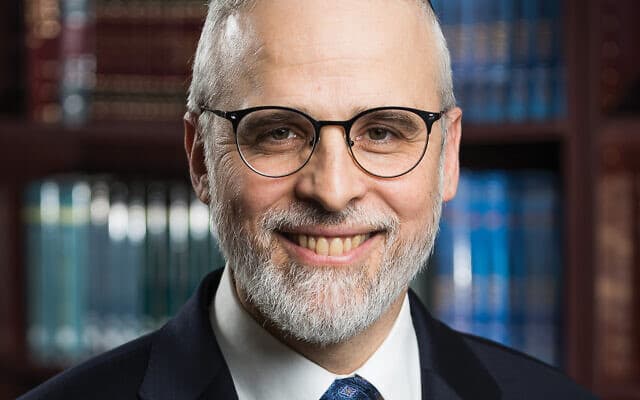The Orthodox Union, the central institution of the Modern Orthodox movement in the United States, has tapped for its new executive vice president Rabbi Moshe Hauer, who has served at Bnai Jacob Shaarei Zion congregation in Baltimore for 25 years. He succeeds Allen Fagin, who is retiring. Rabbi Hauer, who has been active working with at-risk children in the Baltimore area, will take over in the fall.
Rabbi Hauer will be the OU’s “professional religious and policy leader,” while another person will take on the responsibilities of a “chief executive officer,” according to the OU.
The rabbi received his ordination from Ner Israel Yeshiva in Baltimore, and a master’s degree in engineering from Johns Hopkins University.
The Jewish Week interviewed Rabbi Hauer by email. This is an edited transcript:
Q: What does the OU’s decision to split up the responsibilities of its top leadership indicate about the Modern Orthodox movement’s education of its rabbinical leaders?
A: The OU’s decision recognizes that given its current and growing size and scope, the OU is better served by bifurcating the role into two separate areas. By doing so, each senior professional will be able to focus appropriately on specific areas of responsibility.
Q: What do you see as the biggest challenges facing the Modern Orthodox movement?
A: The Orthodox community … is playing an increasingly significant role both in the broader Jewish community and in American society. This growth creates various practical challenges, including the affordability of our lifestyle and the need to strategically plan for the infrastructure needs of our growing communities. We also need to work on our relationships beyond the confines of our community, and to consistently promote the value of internal unity.
Continue reading at the New York Jewish Week
The words of this author reflect his/her own opinions and do not necessarily represent the official position of the Orthodox Union.



